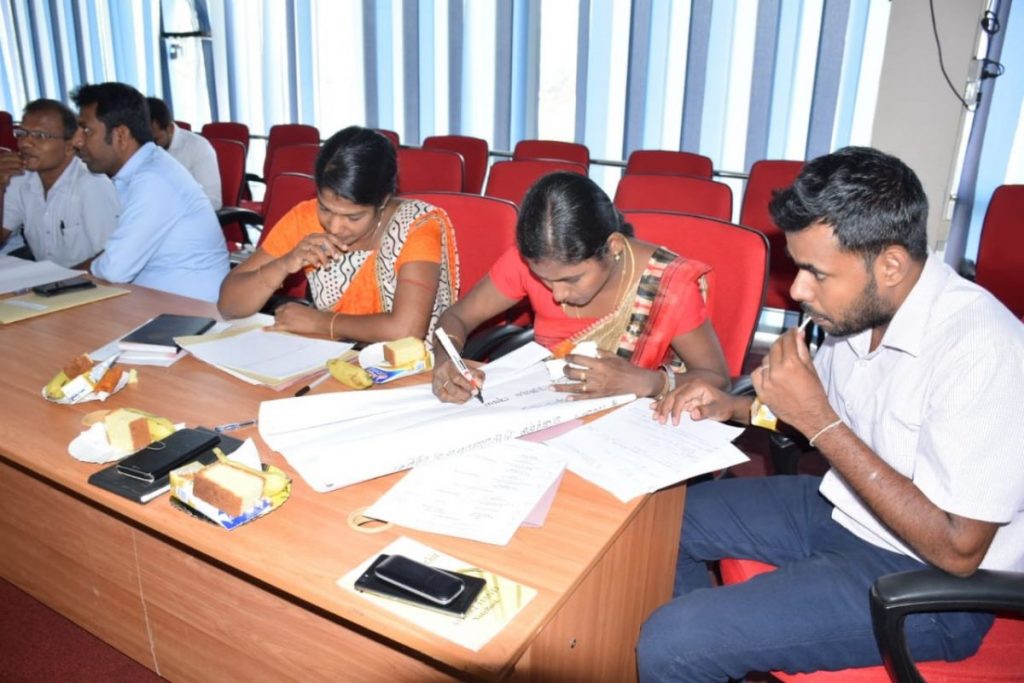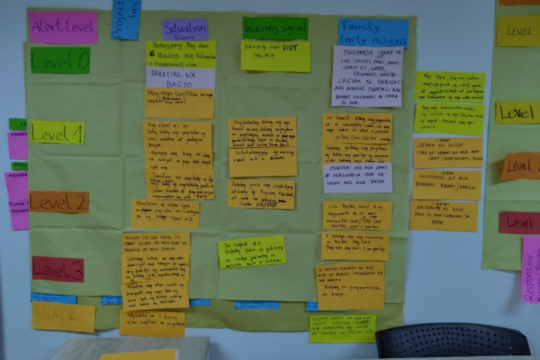Review and updating existing Standard Operation Procedures (SOP) is one of the important parts of early warning dissemination. There was no proper early warning system existing in Sri Lanka before the devastation of Tsunami in 2004. Development of SoPs for most common hazards in Sri Lanka was initiated on 2009. Today, the SOPs are available for the most common disasters such as floods, landslides and cyclones. However, these SOPs have not been updated for nearly ten years which has resulted in, various challenges for Disaster Management Center (DMC) and other technical agencies in issuing timely early warning messages. At the same time, it was felt to identify and develop SOPs for the changing pattern of disasters. Realizing the need for reviewing and updating the existing SoPs for proactive early warning, DMC prioritized it as one of its initiatives under Sri Lanka Preparedness Partnership (SLPP). Three upper stream SOPs for flood, landslides and cyclones were selected to be taken up for revision under the initiative in collaboration with relevant technical agencies.

The process started with a two day stakeholder consultation with participation of representatives from DMC, National Disaster Relief Services Centre (NDRSC) and Department of Meteorology, Irrigation Department and National Building Research Organizations (NBRO).The main objective of the consultation workshop was to review the existing SOPs and identify gaps and present solutions from a national perspective to update the SOPs. Followed by the national exercise, three district level workshops were also organised to incorporate comments from the consultation workshop and review the SOPs for operational gaps. The three district level consultation workshops were held at Kilinochchi, Badulla and Batticaloa districts in the month of June, 2019.

The district level SOP consultation workshops were highly successful as it had full representation from all relevant departments such as health, irrigation, divisional administration and more, from the respective districts. The key discussions at the district level workshops were to identify existing weaknesses in the early warning systems and suggest solutions relevant to the district and hazards faced by them. The gaps in operating systems were also reviewed for action taken by districts upon receiving early warning messages from the national level. In parallel, bi-lateral meetings were held with relevant technical organizations to incorporate desired inputs.
With the conclusion of SOP revision at the district level with identification and proper documentation, subsequent validation of the revised SOPs would be completed in the month of July.


